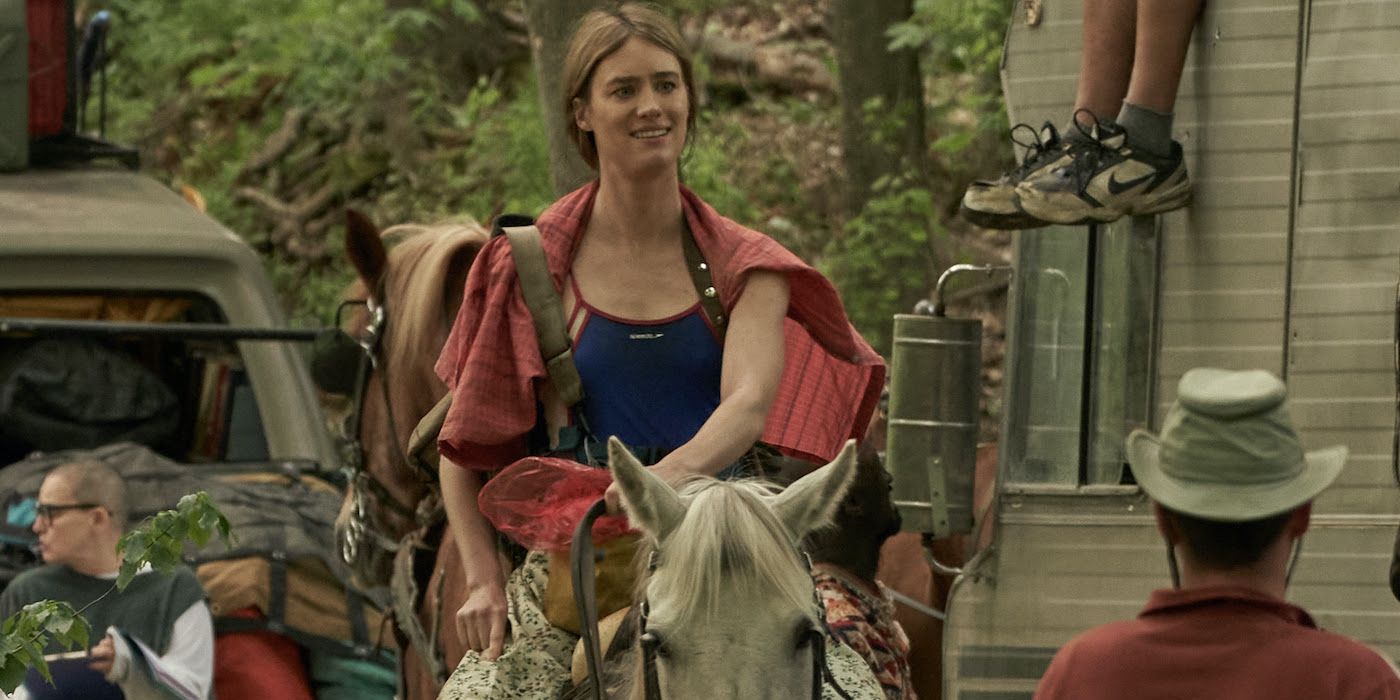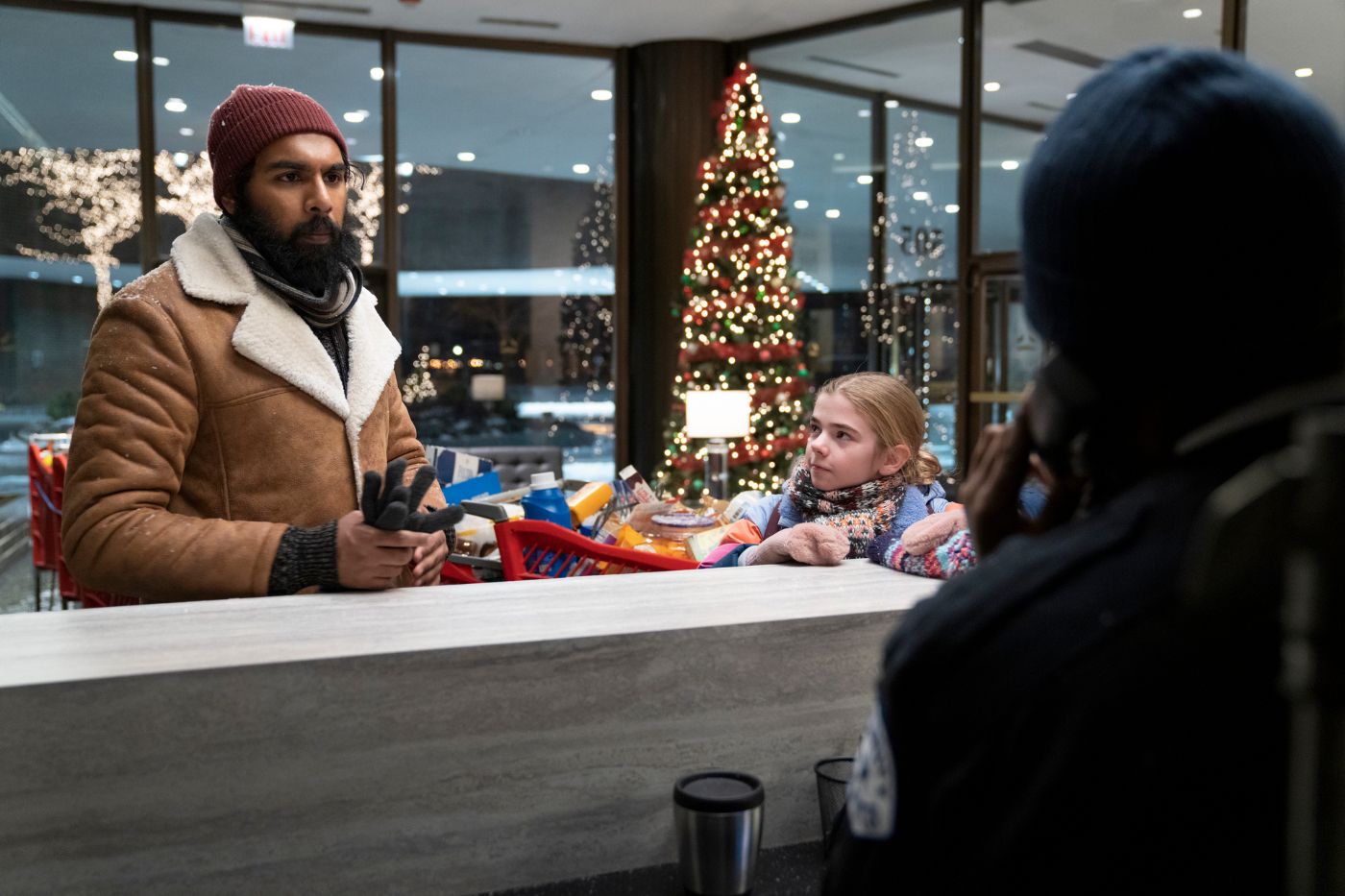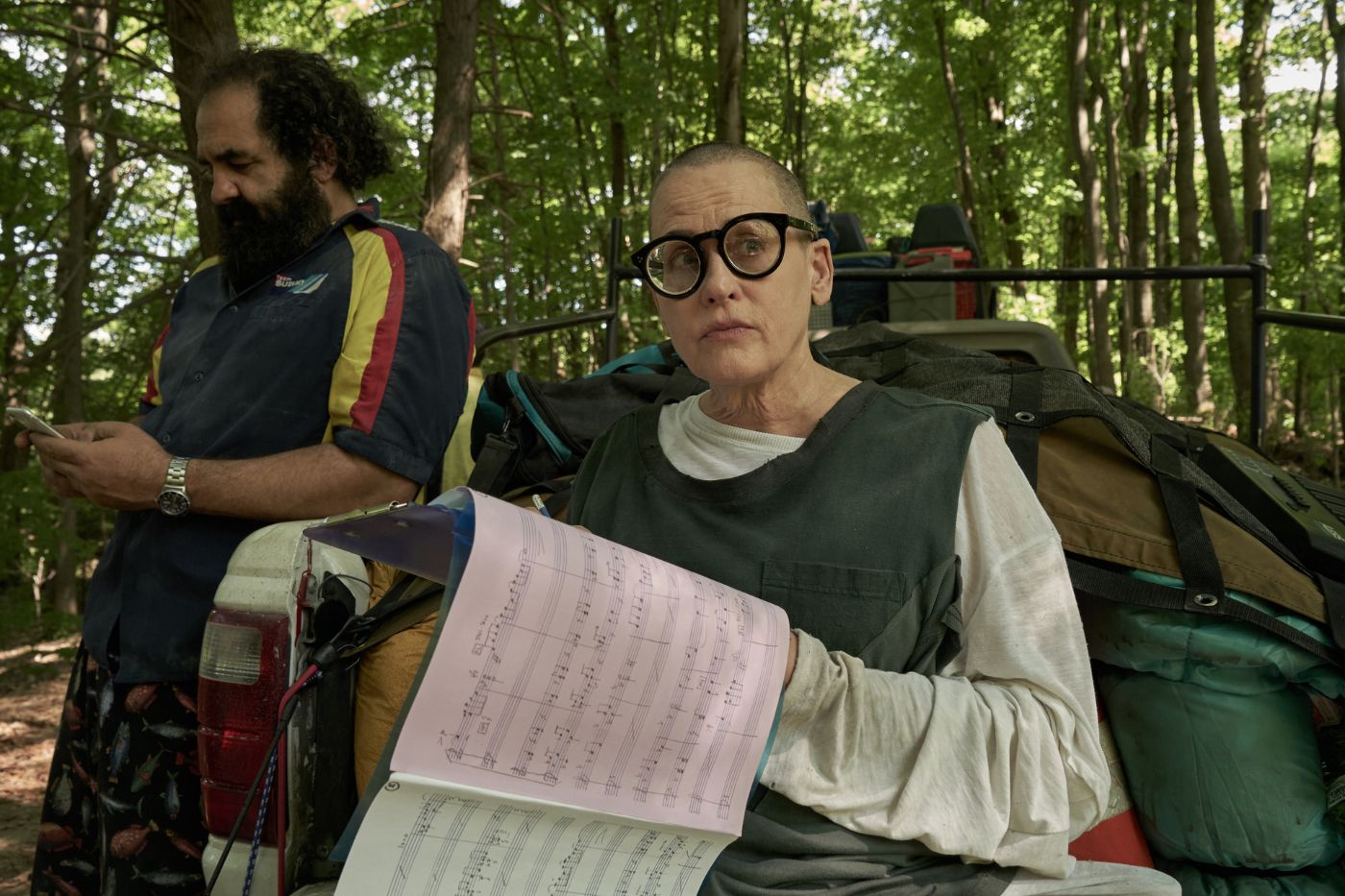In terms of timing, Station Eleven has just about everything working against it. There are no two ways around the fact that the HBO Max miniseries, adapted from the book by Emily St. John Mandel, centers around a pandemic — and is additionally poised to drop in the midst of a landscape where pandemic concerns have left us simultaneously tense, primed for whatever might come next, and exhausted by our present circumstances. But while the apprehension surrounding this fictional premise and its all-too-real similarities to our current situation is understandable, it's how the series illustrates what comes after disaster, and what survives along humanity's own ability to persevere, that makes it an unexpectedly compelling watch — and the end result makes for one of the best TV shows of the year.
What endures, even after societal and technological collapse? (The answer: a lot of art.) What does it feel like to navigate a world in the aftermath of a massive tragedy — or even twenty years on? (Surreal and strange and terrifying and, in some places, side-splittingly funny.) Station Eleven, which hails from The Leftovers writer and Maniac creator Patrick Somerville, spends the entirety of its 10 episodes exploring these questions in addition to so many others, and while the mere concept of the show would have many preemptively convinced that the story is simply a downer, Station Eleven manages to skillfully thread the needle between something that could leave viewers more disillusioned than ever and a successful pandemic adaptation that manages, against all odds, to be... actually pretty hopeful.
A significant portion of that success rests on the shoulders of the show's incredible cast. Station Eleven explores both the years leading up to the fateful event and the years that follow, and the dual timelines are anchored by a run of memorable performances. On the night everything changes, paramedic-in-training Jeevan Chaudhary (Yesterday's Himesh Patel) is sitting in the audience during a stage production of King Lear when its lead actor Arthur Leander (Gael Garcia Bernal) collapses from a heart attack. In the chaos that follows, Jeevan finds himself looking after the play's youngest performer, eight-year-old aspiring actor Kirsten Raymonde (Matilda Lawler) — but little do either of them realize that they'll become the unlikeliest of quarantine companions when news of a flu outbreak begins to spread across New York City and, soon after, the world. Twenty years later, a now-adult Kirsten (Mackenzie Davis) has joined up with a nomadic Shakespeare troupe known as the Traveling Symphony (made up of such delightful supporting actors including Lori Petty, Philippine Velge, and Joe Pingue), whose path crosses with that of a man known as The Prophet (Daniel Zovatto) and his cult of young, impressionable followers seemingly at random — but he might have more of a connection to the performers than anyone initially suspects.
What Station Eleven never fails to convey is the importance of community and relationships, both while the world is picking up the pieces immediately in the aftermath of devastation and enduring two decades on, as well as the connectivity that art can provide. There's a reason that, as technology begins to fail and the last of the city lights wink out, humanity gravitates toward other forms of escape from their present situation. In the post-pandemic world of the series, books and theater and music have absolutely thrived, with people reaching for stories and songs that will comfort themselves and provide a beacon of hope to others in need. One pivotal episode centers around a small group of characters turning a scene from Shakespeare's Hamlet into a means of catharsis and a way to forgive the wrongs of the past. Young Kirsten develops a particular attachment to a comic book she's given right before the world goes dark — the titular story of Station Eleven — reading it over and over again to the point of memorization by the time she reaches adulthood, where it becomes more of a familiar comfort, a security blanket narrative.
But the show also has something intriguing to say about how we as individuals engage with a specific piece of media — and how two people can end up having very different interpretations of the same art. Kirsten believes, perhaps naively, that she is the only one to survive the apocalypse who has even read Station Eleven because only a limited number of copies were printed before the world ended — but as the series reveals, that is definitely not the case. Not only is someone else familiar with the comic, but they've taken the concepts of the story and twisted them into something like a personal manifesto, and the ripple effects of that separate read end up having some of the most dramatic consequences for various characters over the course of the miniseries' 10 episodes. There are moments of despair, of violence, but the difference is that Station Eleven doesn't portray them in a manner that borders on relish or gives the impression that the show itself is numbed to the damage. A good amount of that visual substance comes from distinguished director Hiro Murai, who helmed the pilot and whose creative aesthetic defines much of the show's look from its most critical point forward.
Station Eleven is the quintessential case of an adaptation that doesn't just draw from the best parts of the original novel but actually finds a way to improve on the source material. Its singular flaw, really, is the timing of its release, but the final product is so provoking, poignant, and ultimately optimistic that it becomes an indelible triumph of television, a story that succeeds separately from the book, and one of the best small-screen contributions to 2021. Maybe that's reason enough for any viewers who might be curious about giving this post-pandemic world a try.
Rating: A+
Station Eleven premieres with its first three episodes on December 16, only on HBO Max.



